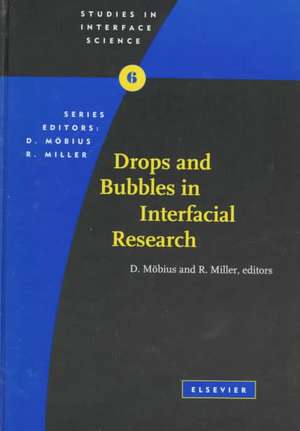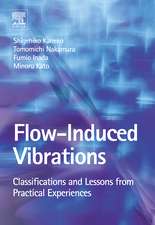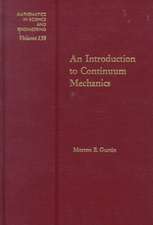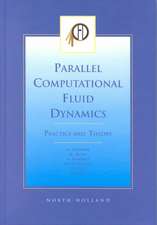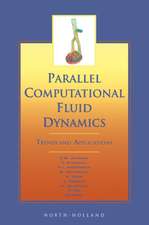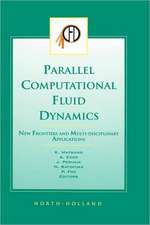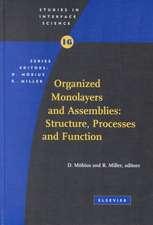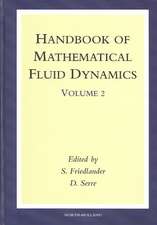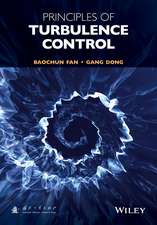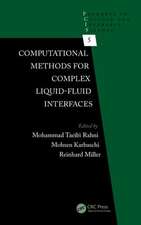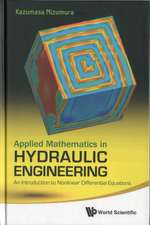Drops and Bubbles in Interfacial Research: Studies in Interface Science, cartea 6
Editat de D. Mobius, R. Milleren Limba Engleză Hardback – 8 dec 1997
The maximum bubble pressure technique as a particular capillary pressure method is described, with emphasis on the most recent developments which made this technique applicable to extremely short adsorption times, down to the range of milliseconds and less. Problems connected with aerodynamics and hydrodynamics are discussed and used to show the limits of this widely used standard method.
The oscillating bubble technique provides information not available by other techniques, for example about the dilational rheology of adsorption layers and relaxation processes at the interface.
The description of rising bubbles in surfactant solutions will contain the hydrodynamic basis as well as the theoretical description of the effect of interfacial layers on the movement of bubbles. Besides the theoretical basis experimental data, such as water purification, flotation processes etc. and the relevance for practical applications will be presented. The chapter about lung alveols demonstrates how important bubbles built by biological membranes are in everyday life. The relevance for medicine and biology as well as model studies is discussed.
An important example for the application of drops is metallurgy, where the surface tension of metals and alloys is an important parameter for many applications. The chapters on drop shape analysis by using fibre technique and on force measurements between emulsion droplets are of much practical relevance.
Lists of references and symbols are given separately at the end of each chapter while a common subject index is given at the end of the book.
Preț: 1426.19 lei
Preț vechi: 1567.25 lei
-9% Nou
Puncte Express: 2139
Preț estimativ în valută:
272.91€ • 285.51$ • 226.70£
272.91€ • 285.51$ • 226.70£
Carte tipărită la comandă
Livrare economică 27 martie-10 aprilie
Preluare comenzi: 021 569.72.76
Specificații
ISBN-13: 9780444828941
ISBN-10: 044482894X
Pagini: 714
Dimensiuni: 156 x 234 x 40 mm
Greutate: 1.19 kg
Editura: ELSEVIER SCIENCE
Seria Studies in Interface Science
ISBN-10: 044482894X
Pagini: 714
Dimensiuni: 156 x 234 x 40 mm
Greutate: 1.19 kg
Editura: ELSEVIER SCIENCE
Seria Studies in Interface Science
Cuprins
Foreword. The Laplace Equation of capillarity (J. Gaydos). Axisymmetric Drop Shape Analysis (ADSA) and its applications (P. Chen et al.). The drop volume technique (R. Miller, V.B. Fainerman). Spinning drop tensiometry (A.M. Seifert). Capillary pressure tensiometry and applications in microgravity (L. Liggieri, F. Ravera). The maximum bubble pressure tensiometry (V.B. Fainerman, R. Miller). The oscillating bubble method (K.-D. Wantke, H. Fruhner). Physico-chemical hydrodynamics of rising bubble (S.S. Dukhin et al.). Pulmonary surfactant and biophysical function (R. Herold et al.). High temperature tensiometry (A. Passerone, E. Ricci). Dynamics of the impact interaction between a fine solid sphere and a plane gas-liquid interface (A.V. Nguyen, H. Stechemesser). Interactions of emulsion drops (P.D.I. Fletcher). From stalagmometry to multianalyser tensiography; the definition of the instrumental, software and analytical requirements for a new departure in drop analysis (N.D. McMillan et al.). Subject Index.
